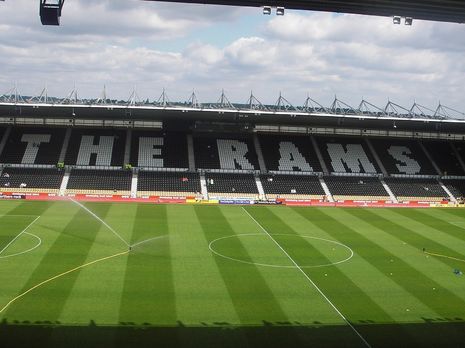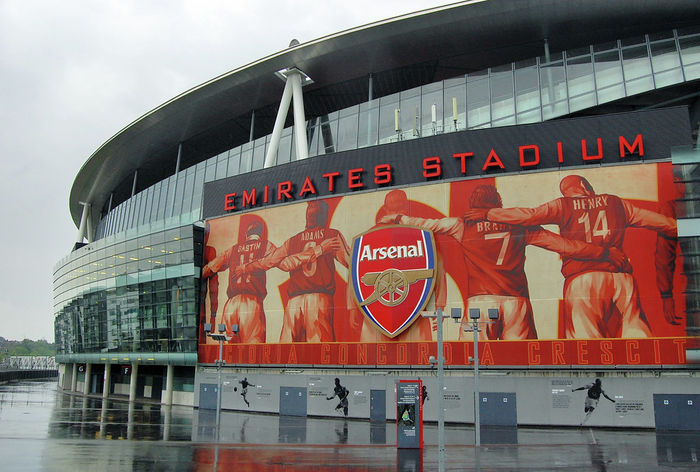More than just a business: assessing the financial plight of EFL clubs
Following Derby County’s recent fall into administration, Harry Atkins discusses the economic challenges facing EFL clubs and the issues behind their vulnerability

Football can be a game of vastly contrasting emotions, from euphoric highs to crushing lows. While Newcastle fans celebrate their recent takeover, Derby County fans are experiencing the polar opposite side of the footballing coin. Derby were docked twelve points for entering administration back in September, currently leaving them rock bottom of the EFL Championship. These are worrying times for Derby fans, as they look almost certain to drop into League One.
As a founding member, Derby are one of the biggest clubs in the English Football League, and so it begs the question as to how their financial situation has reached this stage. Sadly, this is seemingly a recurring theme. Take Bolton Wanderers and Wigan Athletic going into administration in 2019 and 2020 respectively, despite both having played in the Premier League in the last decade; or Bury being expelled from the Football League back in 2019. The list goes on and on, suggesting that something is seriously rotten at the core of the English football pyramid system.
“These football clubs are more than just businesses — they are integral parts of their community that help to bring joy to thousands of fans, and seeing them fall to ruin is a tragedy”
One of the key culprits in this sorry tale is the EFL itself. In theory, the EFL vets potential new owners through its ‘Owners and Directors Test’, with one of the intentions of this test being to “protect [...] the wellbeing of clubs”. However, time and time again, incompetent owners have slipped through the net and have nearly led to the financial ruin of their clubs. As a Coventry City fan, sadly I’ve experienced incompetent owners first hand, having seen my club play outside of Coventry twice in the past decade. No one can tell me that having Coventry play in Northampton and Birmingham is an example of owners looking after the ‘wellbeing’ of the club.
However, more alarmingly, the EFL also seems to have overlooked some major financial concerns when handing over the reigns of clubs. For example, Aston Villa, one of the most successful English clubs in history, faced a winding up order in June 2018 for failing to pay a £4m tax bill. Tony Xia, the then club owner, had taken control of the club in 2016 to much fanfare, with talks of him taking them to Champions League glory. Yet the EFL overlooked the fact his main company, Lotus Health, had been struggling for years, or that he was having increased difficulties in getting his money out of China. Villa were narrowly saved by new owners, but the EFL should have done a more thorough investigation into Xia in the first place.
“The lure of the Premier League is so great that owners are willing to take huge risks to get there”
Though Villa narrowly escaped, the same couldn’t be said of Bury — again a story of the EFL letting an incompetent owner slip through the net. While Bury admittedly already had financial problems when Steve Dale took over the club in December 2018, he was clearly not the man for the job, as a worrying 43 out of the 51 businesses that he has been involved with have been liquidated. Inevitably, the end result was disastrous, with Bury being expelled from the Football League the following year for failing to pay their bills, after 134 years of involvement. Clearly, the EFL needs to improve the quality of its checks and ‘tests’ in order to prevent more clubs being taken over by owners who are either financially ill-suited, or who don’t have the best interests of the club at heart.
Derby County’s predicament reveals the other current financial issue in English football at the moment: spending big for little reward. While we shouldn’t feel too much sorrow for Derby owner Mel Morris, who has left Derby with more than £50m worth of debt, it would be unfair to tarnish him with the brush of not caring about the club. Morris was born in Derbyshire and was a boyhood Derby fan who dreamed of leading his hometown team to greatness.
In his first two seasons he spent around £45m on players, as well as hiring big name managers such as Steve McClaren and Phillip Cocu, all in the hope of getting that golden ticket into the Premier League. But Derby fell agonisingly short, with play-off defeats in both the 2017-18 and 2018-19 seasons, and so Morris pulled the plug on his huge financial investment, deciding that it wasn’t worth taking another £60m risk. Here we see the problem.
The lure of the Premier League is so great that owners are willing to take huge risks to get there, with no guarantee of success in the cut-throat Championship. As Andy Holt, the Chairman of Accrington Stanley, said: “if any of Derby’s attempts had succeeded, the club would probably be worth £300m, not as it is now, buttons”. After all, some do manage to reach the dreamland by risking it all — take Leicester City breaking the EFL’s financial fair play rules to gain promotion in 2014, however many fail to achieve this. Holt added: “the Premier League is laying waste to many great EFL clubs with their vice-like grip on our pyramid”, and far too many EFL clubs are pushing their spending limits in an attempt to reach the promised land.
Something has to change to prevent this happening, as these football clubs are more than just businesses — they are integral parts of their community that help to bring joy to thousands of fans, and seeing them fall to ruin is a tragedy. But sadly, one can’t help but feel that rather than there being some sort of redistribution of income to solve this problem, the sorry tale of Derby County won’t be the last in the growing line of footballing financial woes.
 News / Colleges charge different rents for the same Castle Street accommodation2 March 2026
News / Colleges charge different rents for the same Castle Street accommodation2 March 2026 News / King’s hosts open iftar for Ramadan3 March 2026
News / King’s hosts open iftar for Ramadan3 March 2026 Theatre / Lunatics and leisure centres 4 March 2026
Theatre / Lunatics and leisure centres 4 March 2026 News / Angela Merkel among Cambridge honorary degree nominees27 February 2026
News / Angela Merkel among Cambridge honorary degree nominees27 February 2026 News / News in Brief: waterworks, wine woes, and workplace wins 1 March 2026
News / News in Brief: waterworks, wine woes, and workplace wins 1 March 2026









